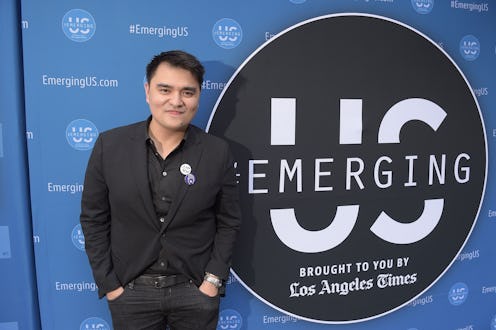News
5 Jose Antonio Vargas Quotes That Matter
If you ask Jose Antonio Vargas, director of MTV's documentary White People, he's more than an undocumented immigrant and an award-winning journalist; he's an American. He's also a self-proclaimed "walking uncomfortable conversation." Along with all of these titles, he's also a powerful activist with bold ideas about what it means to be an American and how to improve our society. He may create an uncomfortable conversation, but Jose Antonio Vargas' best quotes prove he responds perfectly to some of today's toughest questions.
In 2011, Vargas openly identified himself as an undocumented immigrant in The New York Times Magazine, fittingly called "My Life as an Undocumented Immigrant." In it, he describes how he came to the United States: His mother sent him from his home in the Philippines to California with his "uncle" (who Vargas later reveals was actually a coyote) to live with his grandparents in the San Francisco area. He only learned of his undocumented status when he was 16, after he went to the D.M.V to apply for a driver's license and the woman at the counter told him that his green card was fake.
Since then he has tried to lose his accent, gotten his byline into some of the most prestigious publications in the country, and persevered through all types of discrimination (he's also gay) — all in order to convince himself, and others, that he's an American. Along the way, he has worked to shed some much-needed light hot-button issues in this country, like immigration and race relations.
1. On What It Means To Be A Citizen
I convinced myself all would be OK if I lived up to the qualities of a "citizen": hard work, self-reliance, love of country.
Vargas often talks about what it means to be a citizen, as he does in this quote from his Times article. As an undocumented immigrant, he really only has his outsider's view of citizens to go off of — yet he often gets it right. From a young age, he learned what he needed to do to pass off as an American citizen so that he could get a job, get an internship, etc. In fact, if he had the official papers, he would probably be considered to be living the American dream: He came to the country with almost nothing other than his grandparents, and he's now a Pulitzer-winning journalist, a well-known activist, and a documentary director.
2. On What Life Is Like For An Undocumented Immigrant
I'm done running. I'm exhausted. I don't want that life anymore.
What is life like for undocumented immigrants? Vargas' article, which chronicles his entire life in the United States up to 2011, makes it seem like one long race, or scavenger hunt, or obstacle course, or some combination of the three. He has had to find allies all throughout his life, from the choir director who kept his secret amidst group travel plans to his mentor at The Washington Post who helped him keep his job despite his undocumented status. At one point, Vargas tried to obtain legal status in the country, but to no avail.
3. On If He Would Be Deported
This is the question I'm sure every undocumented immigrant would like an answer to. After admitting to the country that he is an undocumented immigrant, Vargas wondered why he wasn't being deported — so he asked Immigrations & Customs Enforcement (ICE) himself. At a 2013 speech in Birmingham, Alabama, Vargas explained the conversation he had:
I called them and I said, "Hi, I'm Jose Vargas, I write for TIME Magazine, and I want to know why I haven't heard from you." She said, "What?" And I said, "Well, are you going to deport me? Why? Why not? If not, then why?"
4. On How To Solve The Immigration Debate
In some ways, it seems like Vargas wants to be a walking uncomfortable conversation — if at least to create the conversation in the first place. Judging by remarks in Alabama in 2013, his solution to the ever-growing immigration debate would be:
We must also be comfortable having uncomfortable conversations, asking deeper questions, to go beyond this border in our minds and seek in our hearts and think with our minds.
Ultimately, this advice is probably true for many of the serious issues facing our society today.
5. On What To Call Undocumented Immigrants
In an interview with Mother Jones from 2013, Vargas addressed the issue of calling undocumented immigrants "illegal." He's been accused of going overboard in his efforts to reduce the use of the phrase "illegal immigrant," but to him, the phrase is dehumanizing and inaccurate.
I'm not excusing the illegal act. I am here illegally. I'm here illegally, without authorization. That's a fact. That's nothing you can call the Orwellian cops about. But I am a human being, so therefore I am not illegal. That's also a fact.
For the last several years, Vargas has given a face to the immigration debate and a voice to the people in his situation. He's aware of the privilege that he has — to be able to talk about his undocumented status relatively freely — but he continues to fight to become a citizen and for the government to recognize him as an American.
Images: Getty Images (5)
